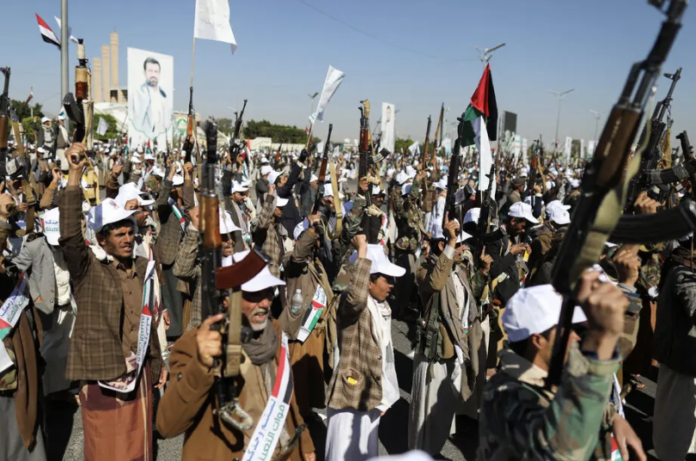The murder of a high -ranking leader Hamas in Lebanon and the mysterious double explosions in Iran exacerbate concerns about the regional war that can attract the United States.
American, Israeli and Lebanon officials insist that few sides want the War of Israel in Gaza to become a wider conflict that will reach the Middle East.
But the murder of Leader Hamas in Lebanon on Tuesday and the death of dozens of people during the mysterious double explosions in Iran threatened to bring the Middle East closer - and the United States - to the boundary of the regional war, which Baiden administration tried to prevent Hamas on Deadly on October 7.
Only a few hours after the explosion in Iran, the United States and 12 of their allies released a written warning to another Rivchen Group in the region, the Yemeni Hussites, who almost daily struck missile, unmanned and sea blows on commercial vessels.
So far, the United States is refrain from revenge against the Hussites in Yemen, largely because they do not want to undermine the fragile truce during the Civil War in Yemen.
A high -ranking Iranian official said that sending warships that join the Iranian intelligence ship, which was already in the region, aimed to signal that Iran supports Hussites and raise rates. But the official said that Iran did not plan to confront the US Navy ships on a waterway.
President Biden said he wanted to avoid direct military attacks on Hussites to avoid escalation of the Middle East conflict.
"We are still extremely concerned about the risk of conflict to other fronts," Matthew Miller spokesman said on Wednesday.
Hezbolla, a mighty Lebanese combat group, promised that the murder of Saleh al-Aruri, leader Hamas on Tuesday in Beirut's suburbs, would not remain unanswered. Hamas's key ally, Hizbalan actually controls the southern suburbs of Beirut, where the explosion occurred, and for months leads an escalation of collisions with the Israeli forces.
The circumstances around the explosions near the Memorial for the former Iranian General Cassim Suleimani in Kerman, Iran, were more vague. While Iran hastened to blame Israel, European and American officials said that the Israelis had been struck: most of their actions against Iran were purposeful, from the elimination of the Chief Architect of the Iranian Nuclear Program to blasting a specific nuclear weapon.
Israeli officials did not comment on whether their forces were aiming at Mr. Al-Aruri, but Lebanese and American officials attributed the attack of Israel.
After the strike, Baiden's officials developed plans to activate diplomatic efforts with officials in Lebanon in the context of effort to put pressure on Hezbolla so that she does not intensify the conflict. State Secretary Atony J. Blinken will be expected to go to the Middle East, where the restraint of potential escalation will be one of his main purposes.
"The likelihood of a regional war in the Middle East increases from 15 percent to 30 percent," said Admiral James Stavidis, a former NATO commander. "Still relatively low but higher than before, and of course, uncomfortable."
But representatives of Biden administration and the Middle East analysts noted that although Hezbolla and Iran entered clashes and proxy against Israel, they do not necessarily seek to expand the conflict.
In recent weeks, Baiden's administration has declassified intelligence data, which indicated that Iranian militarized groups coordinated the attacks of Hussites, providing purposeful information about a commercial vessel passing a water and Suez channel. Israel is highly dependent on marine transport in the Red Sea.
In response to attacks, the United States created a multinational naval group to protect commercial ships both in the Red Sea and in the Gulf.
Pentagon officials have developed detailed plans for rocket launchers and drone bases in Yemen, as well as some objects where there seems to be high -speed boats that were used to attack Maersk container. But there is anxiety that such blows will play in favor of Iran's strategy aimed at being trampled on many fronts.
But the most serious threat to containing the conflict in Gaza emerged on Tuesday after the murder of Al-Aruri .


